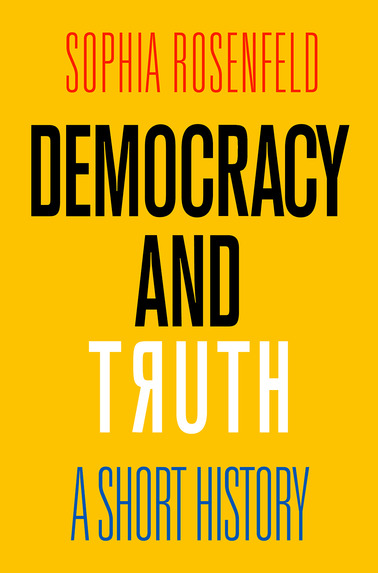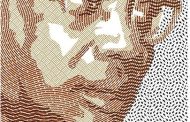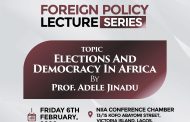By Aminu Habibu Jahun
Since the collapse of the Soviet Union and the emergence of the United States as the dominant world power, competitive multi-party democracy triumphed as the universal governance model. One result is a rush for democratisation in the former Soviet bloc and other parts of the developing world. And whenever multiparty democracy becomes incompatible with the experiences of other peoples, their forms of governments are regarded as cancerous deviations, treated with degrees of disapproval. The December 2022 United States – Africa Leaders Summit to which leaders of military-led African countries were not invited illustrates America’s disapproval of military incursion in African politics although the US was not always opposed to military rule. The axis of evil exposition by former U S president, George W Bush in his 2002 State of the Union address was a strong disapproval of states considered as such, (Iran, Iraq and North Korea) because Republicans believe non Republican states angle for war.
Democracy resonates with most societies due to its alleged freedom of choice but its very nature has a major limitation: it is a part of the political superstructure which has arisen on a capitalist economic base, largely antithetical to peoples interests. Neoliberalism is the economic component of the neo imperialist package foisted on developing countries, with liberal democracy as its political complement, most times advancing United States foreign policy objectives.

Is he going to make things better?
Advancing the interests of the ultra-rich through lower corporate taxes, dubious takeovers of public enterprises, shrinking labour forces and inhuman wage regimes, bailouts to powerful business entities during economic crises and an exponential inequality in societies among others underpin the neoliberal project which, essentially makes the ultra-rich richer and pauperises the poor. Since the last quarter of the 20th century, liberal democracy has served the dominant neoliberal state as its political sidekick.
The economic base of liberal democracy made late Emeritus Prof Eskor Toyo to posit that what obtains in capitalist economic contexts is plutocracy rather than democracy. The plutocratic character of Nigeria’s democracy was demonstrated during the recently conducted general elections. In most places, liberal democracy fails to sufficiently live up to its Lincoln billing of it as a government of the people, by the people for the people. People here refers to all persons, irrespective of their gradations into objective social and economic categories which determine the actual roles they play in liberal democratic praxes .
All persons, or the people in democratic parlance is a rainbow grouping which includes the ultra-rich who dominate the commanding heights of national economies, the very poor and many others whose impacts on democratic praxis vary considerably.
Since the people or persons in general cannot rule, some of them are groomed to be the rulership castes of liberal democracy. This brings to mind the Bush, Gandhi and Kennedy families abroad, and the unfolding new generation of political families being groomed to take over the control of Nigeria’s democracy. This reduces the democratic duties of the people down to validating the designs of the rulership castes in party congresses and conventions, cheerleading during rallies and campaigns, and balloting which elates them because, at last, in their democratic bossom lies the responsibility to retain or remove this or that party from power.
It is in the interest of the neoliberal project that liberal democracy plays a very conservative role in developing countries. The more change seems further away, the more stable neoliberal economies fulfil their missions. That is why issues which interrogate the nature of classes and their relationships are hardly brought to national prominence. Issues today are limited to those within the confines of issues that can be called peripheral and divisive lest fundamental questions be raised which would interrogate the entire social order. Where issues beyond the confines of the social and economic order are raised, they are relegated to the backstage of political discourse, unless the neoliberal project and its political order are sufficiently coerced against resistance .
From Mexico City, Brasilia to Washington; Tokyo, Manilla to New Delhi; and Pretoria, Dakar to Abuja, there is nowhere liberal democracy has gone beyond the confines of its economic base to midwife a new social and economic order. To even make life easier within prevailing social and economic milieu is a herculean task for the democratic establishment in Nigeria. Fees in Nigeria’s federal universities have quadrupled beyond the reach of the poor whilst the wards of its rulership castes are mostly educated in foreign universities, some of them charging huge sums of money.
Political behavior of the people who nourish liberal democracy and reproduce its leaders seem to reinforce its conservative role. As if bewitched by the Greek goddesses of democracy, they seem to be contented with the vote each of them has which they don’t think could be used collectively to bring about meaningful change. So convinced are they in their ability to put up with the prevailing state of affairs (no matter how difficult) to next round of elections when they would vote out one party and bring in another party which would make things better. The more they remain contented with the prevailing social and economic hardships till the next elections, the more things would remain the same, yesterday as today whilst tomorrow would be similar to today. After putting up for eight years with the APC administration, overall voter preference was against it but its candidate won the presidential election. The majority of those who voted against it would have to wait for another four years to express their desire for change again; leaving things in an undisturbed state so that business would continue forever as usual. The status quo becomes perpetual.
The conservative role of liberal democratic establishment also partly lies in its failure to create fertile conditions for the development of the productive forces, which would produce corresponding labour forces that would wrought changes in the social and economic order in developing countries. Nigeria illustrates this best. In Nigeria, the productive forces have not been developed to a level that can make the economy competitive or to realise its productive potentials. Both the system and its managers are not only conservative, they are all mindless too and have never heard of defensive radicalism.




























